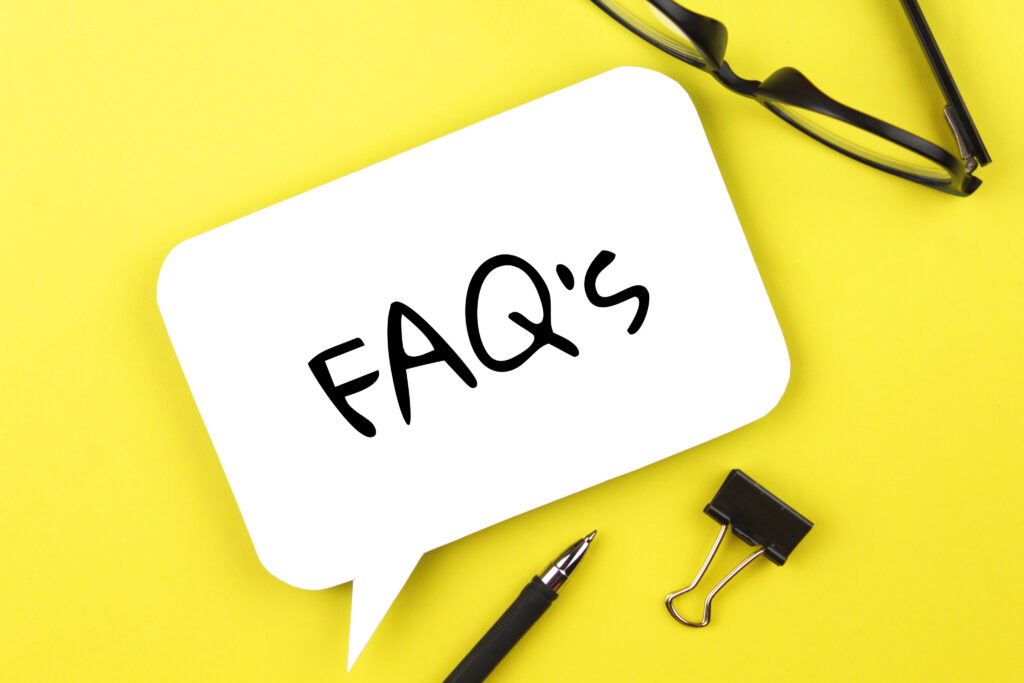Introduction
In today’s rapidly evolving green energy landscape, more property owners consider buying solar or roofing solutions to save on energy costs while contributing to a sustainable future.
However, navigating the complex world of renewable energy can be overwhelming, with multiple options available and potential risks involved. In this comprehensive Consumer Protection Guide for Buying Solar or Roofing, we’ll explore whether solar or roofing is right for you and provide valuable resources to protect your investment in renewable energy.
Is Solar Or Roofing Right For You?
Before deciding, it’s important to consider the benefits and potential drawbacks of solar or roofing installation, such as energy savings and environmental impact.
Benefits And Considerations Before Making A Decision
As a property owner, weighing the benefits and considerations of solar or roofing solutions before making a final decision is essential. Investing in renewable energy systems, such as photovoltaic cells for solar panel installations, can significantly impact your energy efficiency while reducing your carbon footprint.
Solar panels help minimize environmental impacts and offer financial incentives like federal tax credits and metering opportunities.
However, some critical factors must be considered before committing to a solar installation project. First and foremost, evaluate whether your roof is suitable for supporting solar panels – this may involve assessing its size, orientation (south-facing roofs yield better results), structural integrity, shade coverage from nearby trees or buildings, and more.
Additionally, be cautious when evaluating contract options for purchasing or leasing a system outright versus borrowing through financing schemes – each has pros and cons depending on individual circumstances.
In short, carefully considering both benefits and potential drawbacks will enable you to make an informed choice about whether investing in sustainable roofing solutions is right for you – ultimately leading to long-term gains in terms of lowering utility bills while reducing one’s environmental impact at home or business premises alike!

Consumer Protection Resources For Solar And Roofing
Consumers can find helpful guidelines for protecting themselves when buying solar or roofing, such as federal and state regulations, the California Solar Consumer Protection Guide 2021, and consumer guides to purchasing solar panels; it is also important to check a company’s reliability and validity before making any decisions.
Federal And State Guidelines
Federal and state guidelines protect consumer rights, ensure fair business practices, and promote renewable energy adoption among property owners. When considering solar or roofing installations, it’s important to familiarize yourself with these guidelines:
- Federal Trade Commission (FTC) Rooftop Solar Consumer Protection – The FTC works to prevent fraudulent and deceptive business practices in the solar industry by providing consumer resources and guidance.
- State-Specific Guidelines – Each state has its own set of regulations governing solar panel installation and roofing repairs. It is essential to review your state’s rules before entering into any contracts or agreements.
- California Solar Consumer Protection Guide 2021 – This comprehensive guide provides Californian property owners with valuable information on solar energy systems, contracts, warranties, and financing options.
- Renewable Energy Incentives – Both federal and state governments offer various incentives for residential and commercial utility customers who install renewable energy systems such as solar panels. Examples include tax incentives like the Federal Solar Tax Credit 2022 income limit.
- Energy Efficiency Guidelines – Property owners should also be aware of federal and state guidelines focusing on improving energy efficiency in homes and commercial buildings through energy audits and upgrades.
- Building Codes & Permits – Research the necessary building codes, permits, and compliance requirements in your local jurisdiction when installing solar panels or undertaking roof repair projects.
- Environmental Protection Regulations – Adhering to environmental protection laws helps ensure that renewable energy solutions are implemented safely, responsibly, and sustainably.
- Licensing & Certification Requirements – Professional solar panel installers and roofing contractors must adhere to specific licensing requirements in their respective states to ensure their expertise meets regulated standards.
By understanding these federal and state guidelines for solar or roofing installations, property owners can make informed decisions about choosing the right installer while protecting their legal rights as consumers throughout the process.
California Solar Consumer Protection Guide 2021
The California Solar Consumer Protection Guide 2021 is valuable for property owners considering solar energy installation. This comprehensive guide provides crucial information on installation requirements and guidelines to help homeowners choose the right solar contractor.
Property owners can make well-informed decisions about their solar energy investments by following this guide step-by-step. In addition to its detailed instructions and recommendations, the California Public Utilities Commission’s Solar Consumer Protection Guide offers tips for avoiding scams and fraudulent companies that could jeopardize your investment.
Property owners can also consult other resources, such as the SEIA Consumer Protection Primer v1.0—a 100-page document related to consumer protection in solar energy—to further safeguard their interests when choosing a solar company.
Consumer Guides To Buying Solar Panels
Before investing in solar panels for your home, it’s essential to do your research and understand the installation requirements. The Residential Consumer Guide to Solar Power is an 8-page booklet that provides consumers with valuable information on everything they need to know before buying solar panels.
This guide explains how solar panels work, their advantages and disadvantages, financing options, and available incentives such as tax credits or rebates. It also includes tips on choosing a reliable contractor to install high-quality solar panels that will last years.
Not all guides are created equal; therefore, using reputable sources when researching consumer guides for buying solar panels is crucial.
Checking For Reliability And Validity Of Company
Before choosing a solar or roofing contractor, it is crucial to check the reliability and validity of the company. One way to do this is by checking customer reviews and ratings online.
Choosing licensed and certified contractors who comply with industry standards is recommended. Additionally, inquire about their insurance coverage, bonding verification, warranties, and guarantees before hiring them for the job.

How To Choose The Best Solar Or Roofing Contractor
We will cover important factors such as license and certification checks, insurance and bonding verification, warranties and guarantees, and a contract overview to ensure you get the best solar or roofing project contractor.
Research And Compare Contractors
When choosing a solar or roofing contractor, it is important to research and compare your options. Here are some steps to take when looking for the best contractor for your needs:
- Look for contractors with at least three years of experience in solar or roofing installation.
- Research different companies online to see their reviews, ratings, and customer feedback.
- Compare warranties offered by each company, including workmanship warranties and product warranties.
- Check if the company offers financing options, such as loans or leases, that fit your budget and needs.
- Ask about panel quality and certifications, such as Energy Star or NABCEP certification.
- Verify the licenses and certifications of the contractors you are considering.
- Ensure the contractor is bonded and insured in case of any accidents or damages during installation.
- Review contracts carefully before signing, ensuring all terms and conditions are clearly stated.
These steps can help you choose a reliable contractor to provide high-quality solar or roofing installation services.
Licenses And Certifications Check
When choosing the best solar or roofing contractor, verifying their licenses and certifications is crucial. Here are some steps you can take:
- Check with your state’s licensing board to ensure the contractor’s license is current and valid.
- Look for contractors who have certifications from organizations such as NABCEP (North American Board of Certified Energy Practitioners) for solar installations, ensuring they have received proper training and have met high industry standards.
- Verify that the company has adequate insurance and bonding in case of any damages or accidents during the project.
- Ask about warranties and guarantees for their work, which show their confidence in the quality of their services.
- Read through contracts and agreements carefully to ensure everything is clear and agreed upon before signing.
By following these steps, you can ensure that you choose a reliable contractor for your solar or roofing project who is qualified to do the job properly.
Insurance And Bonding Verification
When choosing the best roofing or solar contractor, verifying their insurance and bonding is essential. Here are some things to consider:
- Ask for proof of insurance: Make sure the contractor has liability and worker’s compensation insurance. This will protect you if someone gets injured on the job or if there is any damage to your property during construction.
- Check for bonding: Contractors should have a license bond that provides financial protection for consumers in case the contractor fails to meet their obligations. You can check with your state’s licensing board or ask the contractor for proof of bonding.
- Look for valid licenses and certifications: A licensed contractor has met all requirements by law, and a certificate shows their expertise in installing specific types of energy systems like solar panels.
- Verify warranties and guarantees: Make sure you understand what warranties and guarantees come with installing your roof or solar system, and ask questions if you don’t understand anything.
- Review contracts and agreements: Always read through contracts and agreements before signing anything to ensure everything is as agreed upon.
By keeping these tips in mind, you can ensure that you choose a trustworthy contractor who meets industry standards, complies with building codes, and protects your investment with proper insurance and bonding verification.
Warranties And Guarantees
When choosing a solar or roofing contractor, it’s crucial to consider their warranties and guarantees. Find out if the company provides any material or installation warranty for their products and services.
Some manufacturers offer product warranties of up to 25 years, while some contractors provide workmanship guarantees ranging from one year to ten years. Always check the terms of the guarantee and ensure that it’s comprehensive enough to protect your investment fully.
By doing due diligence on this aspect of finding an installer, you can feel more secure about your property installing solar panels knowing that you are protected against unexpected defects or damages over time.
Contracts And Agreements Overview
Before you sign any contracts or agreements with a solar or roofing contractor, you must clearly understand the terms outlined in the paperwork. These documents typically include details about the installation process, warranties and guarantees, and payment schedules.
You should also make sure that the contractor provides a written estimate for all services to be performed.
Additionally, as a homeowner seeking solar or roofing services, you have certain consumer rights protected by federal and state laws.

Protecting Your Investment
To protect your investment, it’s crucial to understand the contract and agreement terms, prevent fraud and scams, and know your dispute resolution options.
Understanding Contract And Agreement Terms
Before signing any contract or agreement related to solar or roofing, it is important to understand the legal terms involved and how they affect your investment. Contracts often involve long-term commitments, so you must be clear on what you agree to before deciding.
When entering into these contracts, it’s crucial to carefully review all terms and conditions. Ensure you fully understand payment schedules, warranties, guarantees, system maintenance requirements, and any penalties or cancellation fees associated with early termination.
Additionally, be aware of potential scams when dealing with contractors in this industry. Some companies may use misleading language or high-pressure sales tactics to get customers to sign contracts without fully understanding their rights and obligations.
Always ask for references from previous customers and check licenses and certifications before signing anything.
Fraud Prevention And Scam Avoidance
Fraud prevention and scam avoidance are essential when investing in solar or roofing. Here are some tips to protect your investment:
- Conduct thorough due diligence: Research the company and contractor before deciding. Check their licenses, certifications, insurance, and bonding.
- Be cautious of misleading tactics: Watch out for companies that pressure you into signing contracts or promise unrealistic returns on your investment.
- Protect yourself from real estate scams: Verify ownership and conduct a title search if buying or renting a property.
- Stay informed about changes to your investment: Keep track of any changes made to contracts or agreements and promptly address any concerns with the contractor.
- Take advantage of legal protection: Consult with an attorney to understand your rights and options in case of disputes or fraud.
Remember, protecting your investment is crucial in avoiding fraudulent schemes in the solar and roofing industry. Stay vigilant and be proactive in preventing fraud.
Dispute Resolution Options
Planning to resolve any disputes when buying solar or roofing products is important. Fortunately, several options are available to property owners in conflict with their contractors.
One option is mediation, which involves hiring an impartial third-party mediator to help both parties reach a mutually agreed-upon resolution. Another option is arbitration, where both parties present their cases before an arbitrator who makes a legally binding decision.
And if all else fails, litigation can be pursued through small claims court or other legal channels.
Financing Options And Scam Prevention Measures
When purchasing solar or roofing systems for your property, understanding the available financing options and scam prevention measures is crucial. One popular choice is signing a power purchase agreement (PPA), where a third-party provider owns and maintains the system. At the same time, you pay for the electricity produced at an agreed-upon rate.
Another option is leasing, where you do not own the system but pay monthly fees.
To avoid falling prey to scams in the solar industry, research any company thoroughly before making any commitments. A reliable company should have licenses and certifications from reputable organizations such as NABCEP or SEIA, insurance coverage, bonding verification information, and warranties/guarantees on products used/installed/produced by them.
Investing in solar energy solutions can be a valuable investment for your home’s energy efficiency and environmental sustainability efforts by considering these factors when choosing financing options and preventing scams during your purchase process.
Conclusion And Final Thoughts
In conclusion, educating oneself about consumer protection guidelines for buying solar or roofing is essential. These will help you make informed decisions, protect investments, and avoid fraud.
Property owners can confidently navigate the market by understanding the benefits and considerations of renewable energy systems, researching contractors’ credentials and transparency, comprehending contracts and agreement terms, and being aware of scam prevention measures.
FAQs
- How can I verify if a solar or roofing company is legitimate?
Before hiring a company, research its reputation by checking online reviews and ratings on consumer protection websites. Additionally, check if the company is licensed, insured, and certified to install solar panels or roofs in your area.
- What are some red flags to look out for when buying solar or roofing products?
Avoid companies that pressure you into making an immediate purchase. Ask for large upfront payments before work begins, or make false claims about government rebates and incentives. Always read contracts carefully before signing them, and be wary of any vague terms or hidden fees.
- Are any guarantees or warranties offered with solar or roofing installations?
Most reputable companies will offer manufacturer product warranties and installation guarantees for their services. Be sure to understand what these protections cover and how long they last.
- How can I protect myself from scams related to solar or roofing purchases?
Never give personal information such as social security numbers over the phone unless you initiate contact with the company first. Watch out for unsolicited offers that seem too good to be true. Never agree to pay someone who shows up at your door unannounced without proper identification and documentation of their credentials. If something seems suspicious, don’t hesitate to report it immediately.

